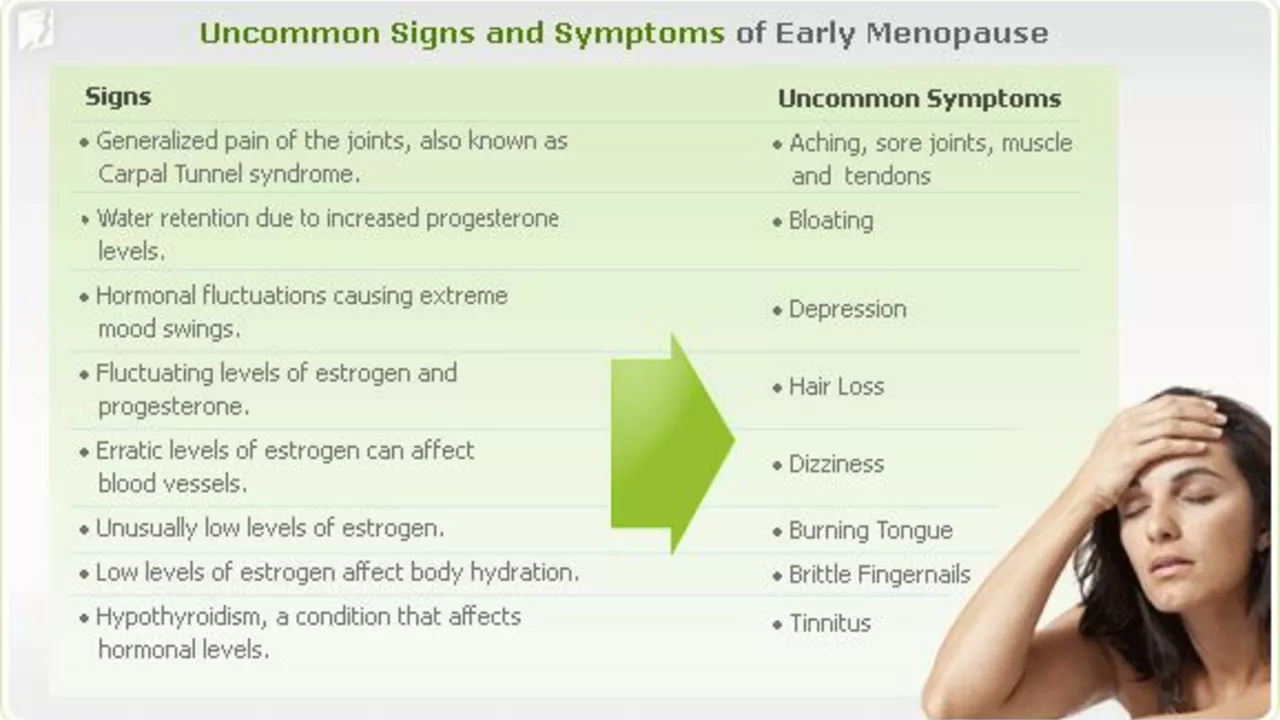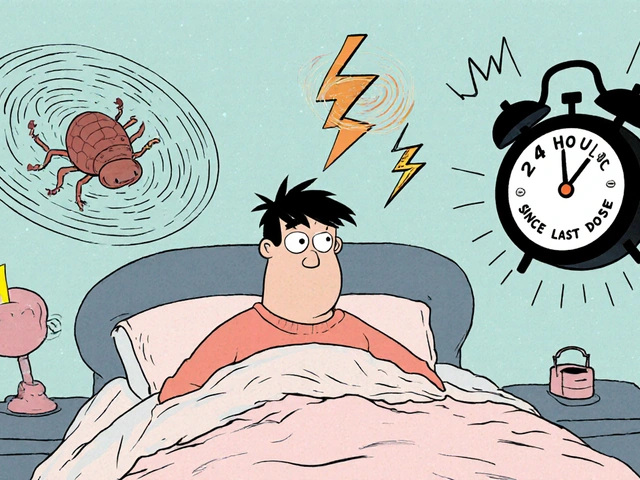Menopause: What You Need to Know Today
If you're hitting your late 40s or early 50s, chances are menopause is on the horizon. It’s not just a single event but a gradual shift in hormone levels that can affect sleep, mood, and more. Knowing what to expect makes the change far less scary.
Common Symptoms and When They Appear
Hot flashes are the headline act—those sudden waves of heat that leave you sweating for minutes. Night sweats often follow, breaking up sleep and leaving you groggy. You might notice mood swings, irritability, or mild anxiety as estrogen drops.
Other signs include vaginal dryness, reduced libido, and occasional memory fog. Some women report joint aches or a slight weight gain around the belly. Symptoms can start a few years before periods stop completely (perimenopause) and may linger for several years after.
Treatment Options: Meds, Hormone Therapy & Natural Ways
Prescription hormone therapy (HT) is the most direct way to rebalance estrogen and progesterone. Doctors usually start with low doses and adjust based on how you feel. HT can smooth hot flashes, protect bone health, and improve mood, but it isn’t right for everyone—talk through risks like blood clots or heart issues.
If hormones aren’t your choice, certain antidepressants (SSRIs or SNRIs) can calm hot flashes and mood swings. Gabapentin, a nerve‑pain drug, also helps with night sweats. Always discuss dosage and side effects with your pharmacist.
Natural approaches work well alongside meds. Phytoestrogen‑rich foods—soy, flaxseed, lentils—can give a mild hormone boost. Regular exercise, especially strength training, supports bone density and lifts mood. Aim for 30 minutes most days, mixing walking, yoga, or light weight work.
Sleep hygiene matters: keep the bedroom cool, avoid caffeine after noon, and use breathable fabrics at night. Herbal teas like chamomile or peppermint can soothe nighttime sweating. Some women find relief with black cohosh or red clover, but check with a healthcare provider before adding supplements.
Stress management is another big piece. Simple breathing exercises, mindfulness apps, or short walks can lower cortisol, which often spikes during menopause and worsens symptoms.
Don’t forget routine health checks. Bone density scans (DEXA) catch early signs of osteoporosis, while cholesterol panels track heart‑health changes that can accompany hormonal shifts.
Every woman's journey is unique. Keep a symptom diary—note when flashes happen, what you ate, how well you slept—to spot patterns and guide your doctor toward the best plan.
Menopause isn’t an ending; it’s a new chapter where you can take charge of health with informed choices. Use these tips, stay curious, and remember that support is just a click away on MailOrderMeds for reliable medication info and guidance.




